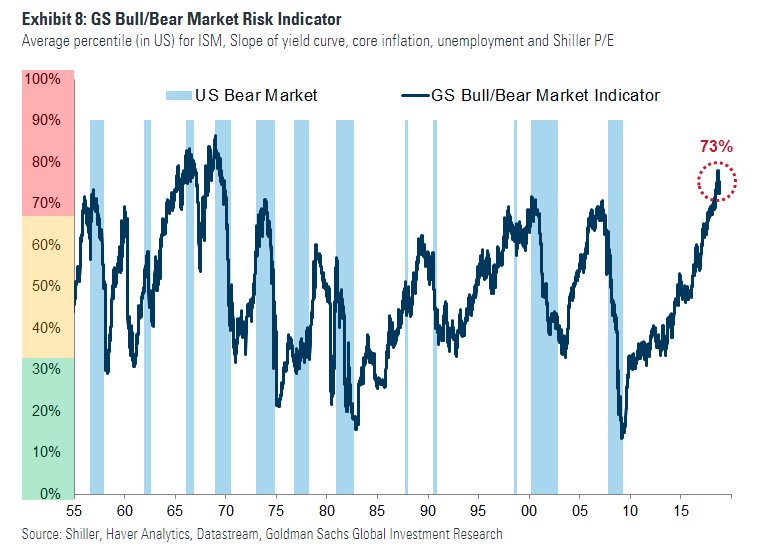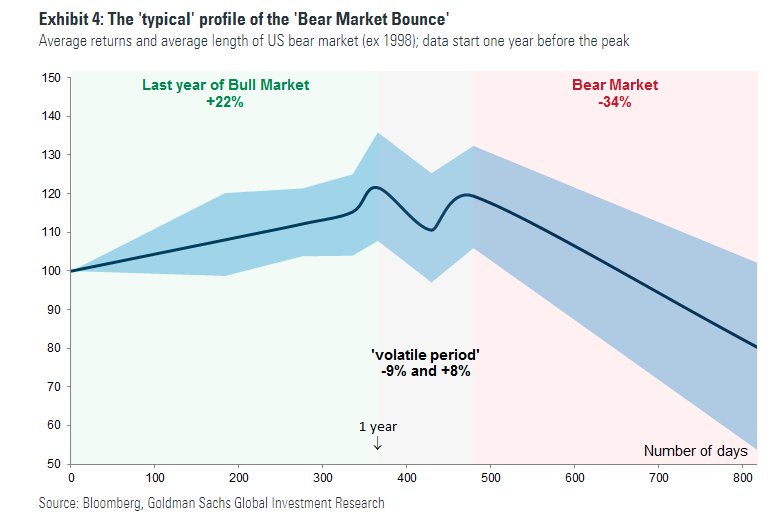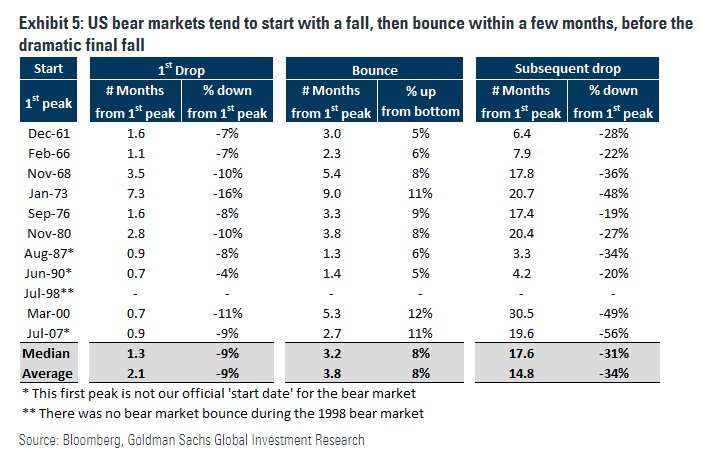I keep hearing people complain that the ‘mainstream media’ does not understand economics and that we’re talked down to as if everything must be explained as if the economy is a household. In this thread I explain all you (and they) need to know. Economics in one thread then....
More from Richard Murphy
There is a growing and numbing realisation of just how bad Sunak's budget really was. Worse, he’s even now saying that there is nothing he can do about poverty. This is a long thread to explain why he’s failing and what we can do about it if we want to change our politics.
For those who don’t want to read a long Twitter thread there is a blog version here. https://t.co/AuTdAr1f1n if you want a summary of the whole thread it’s this: the neoliberal thinking that all our main political parties subscribe to is now bankrupt. We need something new now.
Sunak faced a challenge this week. A winning Chancellor has to decide how to secure the support their party needs to win elections. In that case there will always be winners and losers in a budget. So Sunak had to make decisions.
However, it’s fair to say that decisions are always constrained. No budget has, I suspect, ever delivered precisely the policies any Chancellor has really wanted. That’s because all politicians are fantasists and reality has to be addressed as well in any budget.
The overwhelming realities that Sunak needed to address yesterday were really not hard to spot. First, there was the real economic chaos created by shortages in the economy. These are the result of Covid, Brexit and now war, but which heavily pre-dated the last.
For those who don’t want to read a long Twitter thread there is a blog version here. https://t.co/AuTdAr1f1n if you want a summary of the whole thread it’s this: the neoliberal thinking that all our main political parties subscribe to is now bankrupt. We need something new now.
Sunak faced a challenge this week. A winning Chancellor has to decide how to secure the support their party needs to win elections. In that case there will always be winners and losers in a budget. So Sunak had to make decisions.
However, it’s fair to say that decisions are always constrained. No budget has, I suspect, ever delivered precisely the policies any Chancellor has really wanted. That’s because all politicians are fantasists and reality has to be addressed as well in any budget.
The overwhelming realities that Sunak needed to address yesterday were really not hard to spot. First, there was the real economic chaos created by shortages in the economy. These are the result of Covid, Brexit and now war, but which heavily pre-dated the last.
More from Economy
1/ Trend Factor: Any Economic Gains from Using Information over Investment Horizons? (Han, Zhou, Zhu)
"A trend factor using multiple time lengths outperforms ST reversal, momentum, and LT reversal, which are based on the three price trends separately."
https://t.co/udkvsdw2Lz
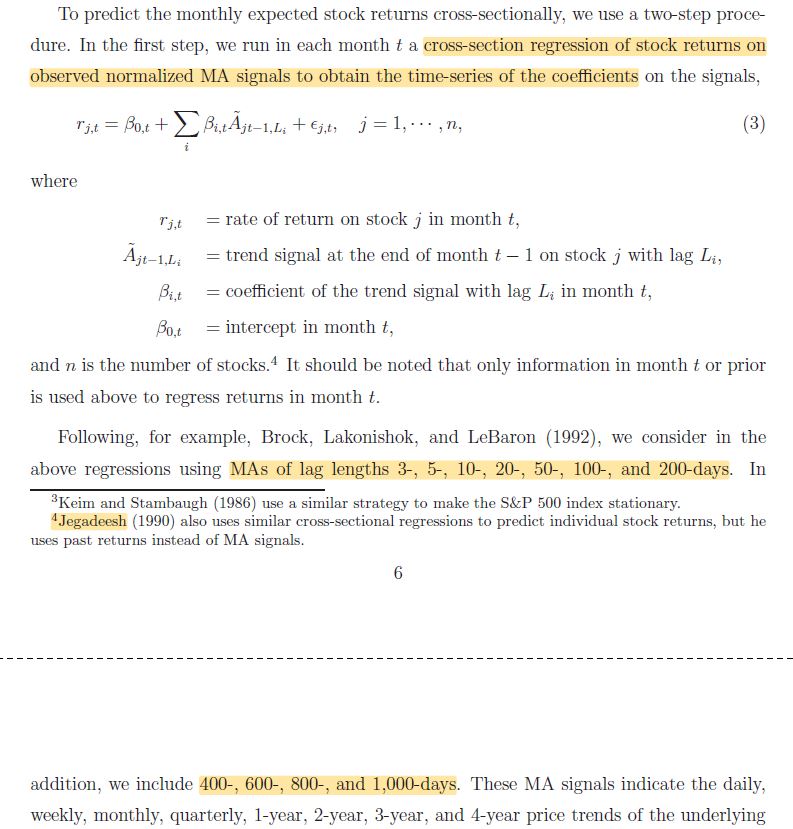
2/ This resembles combining multiple measures of ST reversal, momentum, and LT reversal (forecasts determined by walking forward rather than using signs from the full sample).
Unlike normal moving average signals, these are *cross-sectional.* More below:
https://t.co/wkIFLg9jtK
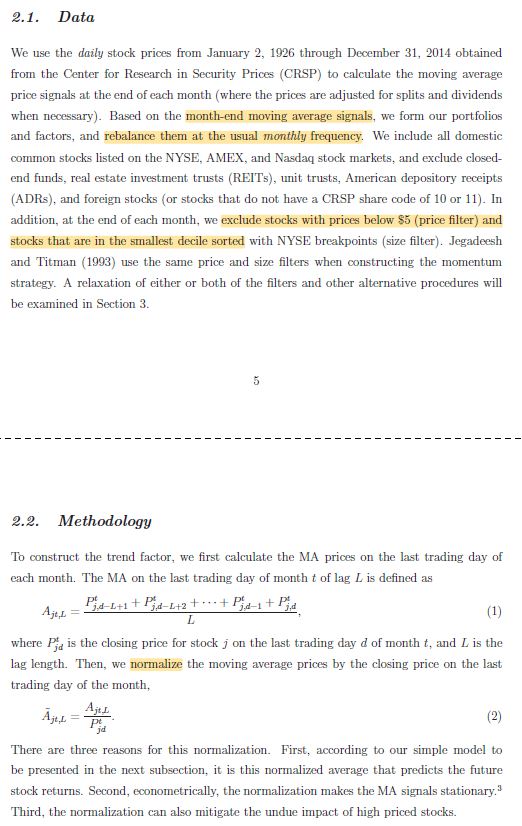
3/ Unsurprisingly, the Trend factor formed by this approach outperforms benchmarks in terms of both Sharpe ratio and tail metrics. It's combining momentum with two factors that are negatively correlated to it AND using multiple specifications.
More here:
https://t.co/x8Tloz3iyL
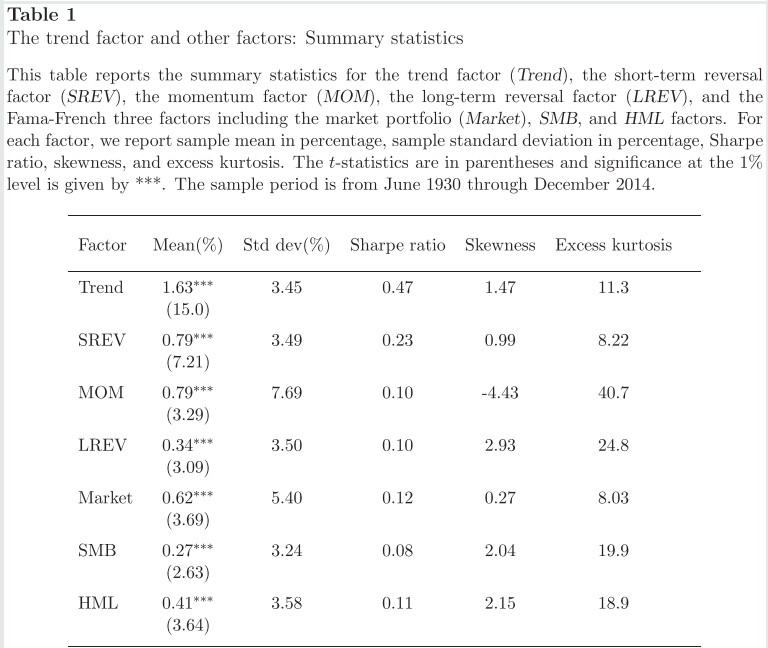
4/ "Average return and volatility of the trend factor are both higher in recession periods. However, the Sharpe ratio is virtually the same.
"Interestingly, all of the factors still have positive average returns.
"Momentum experiences the greatest increase in volatility."
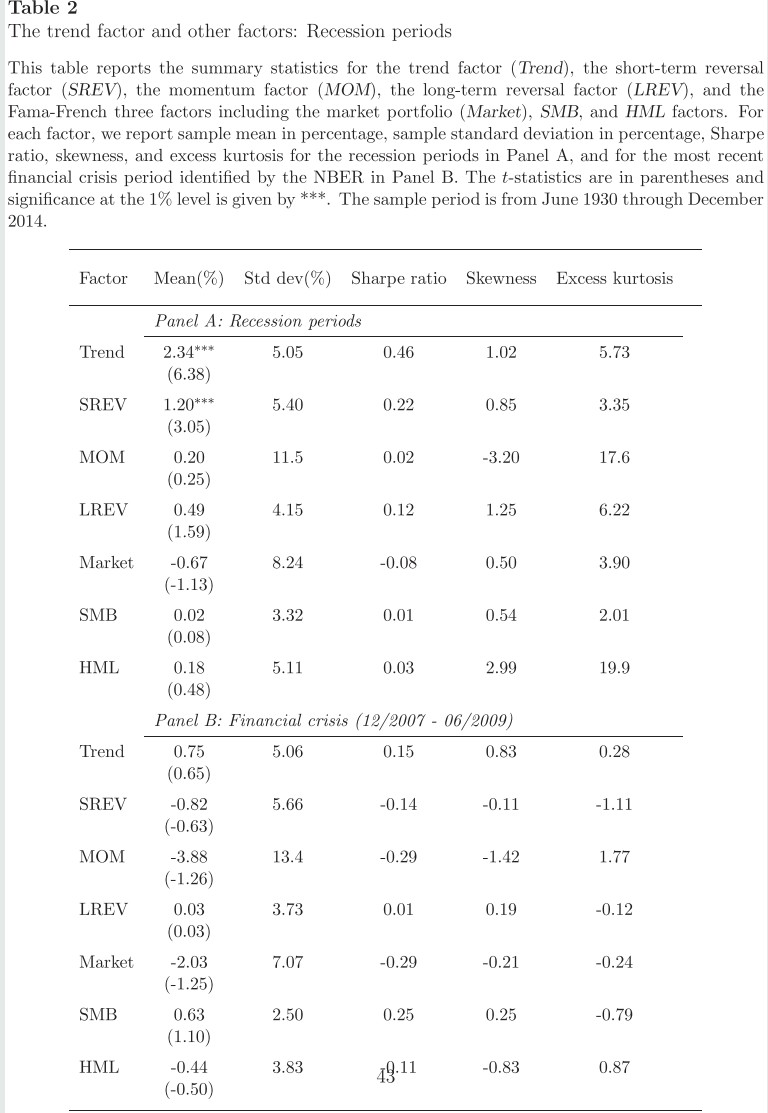
5/ "In terms of maximum drawdown and the Calmar ratio, the trend factor performs the best.
"The trend factor is correlated with the short-term reversal factor (35%), long-term reversal factor (14%), and the market (20%) but is virtually uncorrelated with the momentum factor."
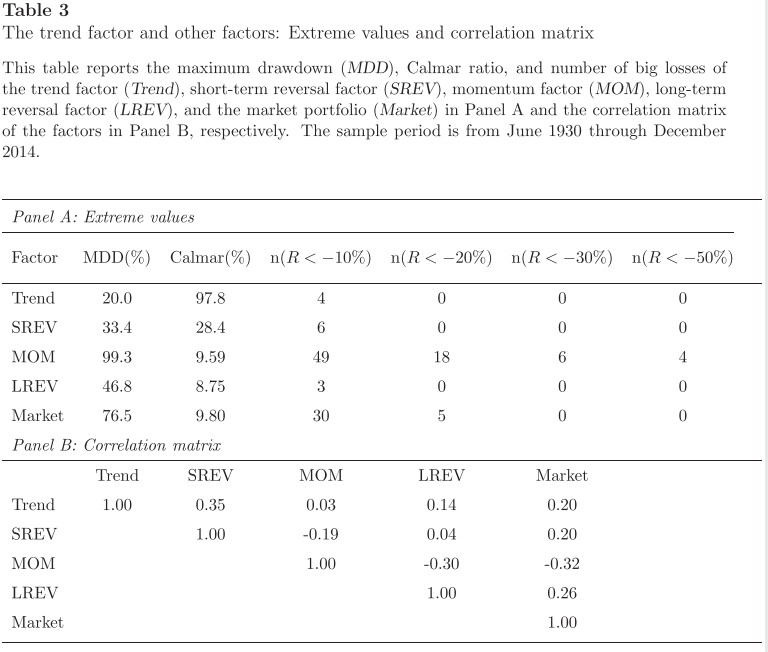
"A trend factor using multiple time lengths outperforms ST reversal, momentum, and LT reversal, which are based on the three price trends separately."
https://t.co/udkvsdw2Lz

2/ This resembles combining multiple measures of ST reversal, momentum, and LT reversal (forecasts determined by walking forward rather than using signs from the full sample).
Unlike normal moving average signals, these are *cross-sectional.* More below:
https://t.co/wkIFLg9jtK

1/ Cross-Sectional and Time-Series Tests of Return Predictability: What Is the Difference? (Goyal, Jegadeesh)
— Darren \U0001f95a (@ReformedTrader) June 18, 2019
"The difference between the performances of TS and CS strategies is largely due to a time-varying net-long investment in risky assets."https://t.co/CSIn3ujN2R pic.twitter.com/XHnVmIart4
3/ Unsurprisingly, the Trend factor formed by this approach outperforms benchmarks in terms of both Sharpe ratio and tail metrics. It's combining momentum with two factors that are negatively correlated to it AND using multiple specifications.
More here:
https://t.co/x8Tloz3iyL

1/ An Executive Summary (in Tweet form) of our new paper
— Adam Butler (@GestaltU) March 27, 2019
Dual Momentum \u2013 A Craftsman\u2019s Perspective
Download here: https://t.co/Y9GlGNohBg
Everything that follows in this thread is based on HYPOTHETICAL AND SIMULATED RESULTS. pic.twitter.com/9m5YJnTdtq
4/ "Average return and volatility of the trend factor are both higher in recession periods. However, the Sharpe ratio is virtually the same.
"Interestingly, all of the factors still have positive average returns.
"Momentum experiences the greatest increase in volatility."

5/ "In terms of maximum drawdown and the Calmar ratio, the trend factor performs the best.
"The trend factor is correlated with the short-term reversal factor (35%), long-term reversal factor (14%), and the market (20%) but is virtually uncorrelated with the momentum factor."

I know I’ve been beating this redlining and wealth gap drum for 20+ years but here is a GREAT cliffs notes version.
But don’t take @ambermruffin’s word for it. You should get references...
A thread
How homes in Black neighborhoods are undervalued by $156
Every major bank in the US has been sued for mortgage discrimination and a study that included every mortgage in America found that Banks charge higher interest rates to nonblack customers
https://t.co/sx9tWWB98s
Baltimore redlined areas in 1935 vs Baltimore Drug arrests in 2016
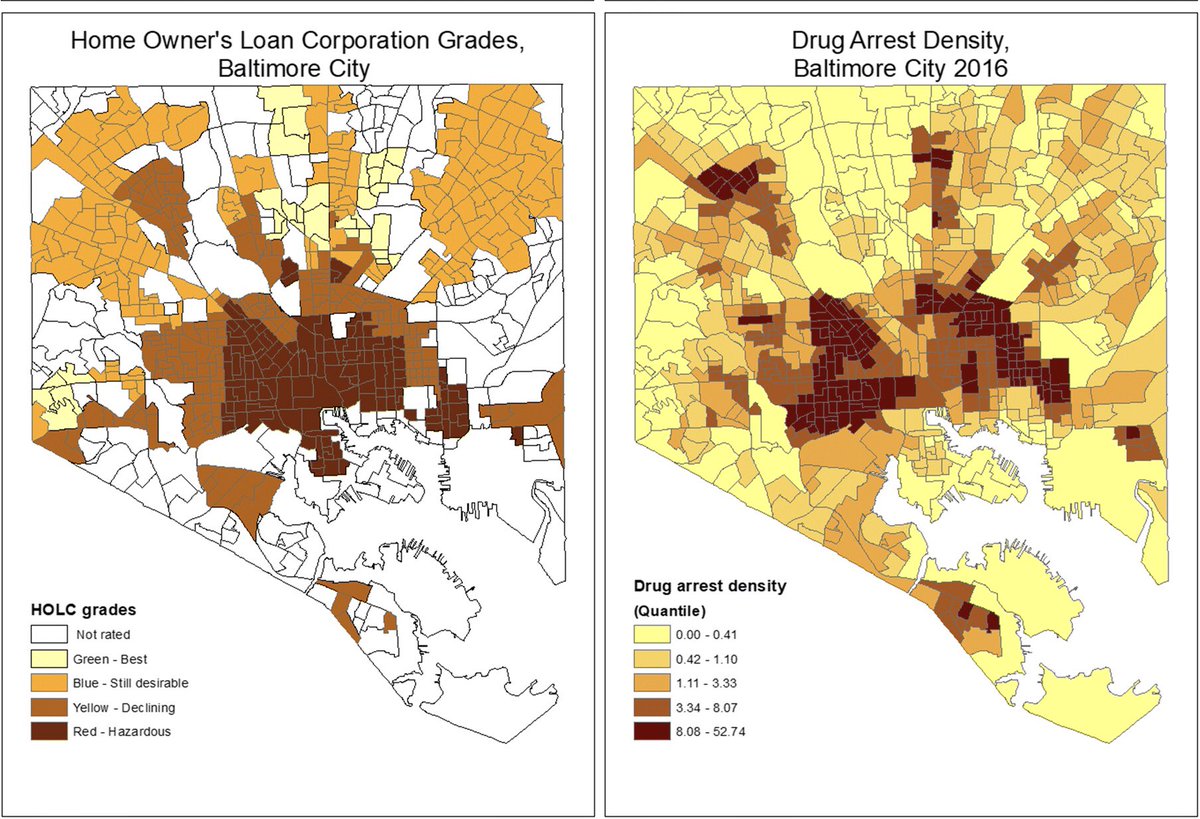
But don’t take @ambermruffin’s word for it. You should get references...
A thread
How did systemic racism get so dang strong? Find out a few of the like bajilliondy ways in our new segment, How Did We Get Here! pic.twitter.com/f4HfISckXh
— amber ruffin (@ambermruffin) January 30, 2021
How homes in Black neighborhoods are undervalued by $156
Every major bank in the US has been sued for mortgage discrimination and a study that included every mortgage in America found that Banks charge higher interest rates to nonblack customers
https://t.co/sx9tWWB98s
Baltimore redlined areas in 1935 vs Baltimore Drug arrests in 2016



